April 1971
After completing the Advance Course on Radars, I was posted to West Bengal to command a Workshop Company. I had just earned my ‘Nine year long service medal’ and that made me feel pretty senior. My unit was located in a place called Kanchrapara, which was 48 kilometers north of Calcutta. When I landed up, I discovered that Naxal activity was at its peak, and at the same time, a war with Pakistan also seemed imminent. We had recently received a new generation of guns and radars, and the ‘teething’ problems were plenty. There was not a dull moment.
As soon as I had settled down, I was asked by the boss in the Command headquarters to give my assessment of the maintainability of the equipment and our minimum requirements to ensure maximum ‘operational availability’ in the event of a war. I spent three days, inspecting tools, test equipment, plant and machinery, and worked until well past midnight each day. Finally, it was time to type it out the report. The main paper was taken up by the ‘head clerk’ while his colleagues took up the ‘appendices’. The first draft came to me at about 4 pm, and the deadline for sending it was the next morning. To my horror, the typing was atrocious. The poor ’babu’ was not used to my nearly illegible handwriting, and received quite a mouthful from me. The second draft was a little better, but nowhere near the acceptable level. Two or three drafts followed. By that time it was about eight in the evening, and he was showing signs of fatigue. I told him to bring his machine to my office and type while I dictated each word to him. The machine came along with a table, and the poor clerk was working with his officer commanding breathing down his neck.
I made sure that he corrected every mistake which he had made. But when the paper was ready, I noticed that he had introduced some new errors. At this point, he got up, stood at attention and said that he was suffering from a severe ache in his wrists and that he could type no longer. He showed me that place where his wrists were paining.
My first reaction was to shout at him, but the senior JCO, who had been standing outside all through the evening, came in and requested me to calm down and listen to him. He sent the head clerk out and politely informed me that no clerk can type in peace, when he is not in his own workplace. Meanwhile, my second-in-command came in and showed me all the appendices which were typed under his guidance and checked by him. The two of them assured me that they would start typing long before dawn and that I would get an error free paper well before the deadline which I had set for ourselves.
As I came out of the office, I noticed that there were at least a dozen people hanging around outside the office. The electricians had kept a fully charged battery with an improvised lamp to cater for power failure; the mess NCO had brought some food, along with a drink and in a thermos there was tea for everyone. The Company Havildar Major gave a smart salute with the red sash, shining across his chest. This was enough to assure me that the unit was ‘fit for war’ in every respect.
*
In the morning, the paper was ready, and a courier took it by hand. There was, indeed no error in typing. However, I had made up my mind to learn typing. In the Academy, we had been taught that you must give no order which you cannot carry out yourself. I also wanted to know what kind of pain arises out of continuous typing. So, in the afternoon, I had a machine placed in my office, and set about the task of learning how to type. The first thing I noticed was that the alphabets on the keyboard are not placed alphabetically, but in a haphazard manner. I asked the clerks as to why they are not arranged in the alphabetical sequence, but none of them could give me a cogent reason. Next, I noticed that the keys had to be struck with considerable force. And if there were multiple copies, interleaved with carbon papers, the force increased with each additional copy. The pain in the wrist and the elbow muscles was palpable after the very first session. My ‘instructor’ told me that for my requirements, it would be ideal to acquire a ‘portable’ machine. And I set my heart on buying one for myself.
The market survey revealed that such machines were imported, and it could only be obtained from the grey market. The prevailing price was upwards of Rs 1,500. I must mention that my pay at that time was Rs 900 and we lived on a monthly budget of Rs 600. An ‘imported’ camera which I had acquired in 1968, had upset our finances for several months. Incidentally, it must be mentioned that gold during that period traded at Rs 190 per 10 grams. So, my portable typewriter fantasy was worth at least Rs 2,00,000 at the current price level!
Just when I thought that my ‘dream’ of owning a portable typewriter would never come true, I saw a classified ad in the paper in which a person offered to sell just the kind of machine which I was looking for. I rushed to his house, at the first opportunity, and he let me test the equipment. O boy! it was light and sleek, with feather touch keys! It was just what I needed. I asked him how much I would have to pay for it. He said, “I have an offer of Rs 900, but I am looking for more”
I had taken Rs 700 with me. But I could not afford to lose this opportunity. I gave him the money, and told him that I would send him the rest within three days. I removed my wrist watch and offered it as a collateral for the balance. My only request was, that I should be allowed to take my dream machine with me. The old man looked at me and said, “Major Sahib, this typewriter was bought for our son, but he is gone…We have not used it, and have no use for it. Now, it is yours. I do not need any more money” And then as a parting gift, he gave me a brand new ’red and blue’ ribbon (worth Rs 50) with which one could obtain multi-color impressions.
Two pairs of eyes were moist when I rose to leave his house. The buyer and the seller were both moved to tears.
*
In due course, I understood the reason why the keys are not placed in the alphabetical sequence. Soon after the typewriter was invented in or around 1850, the pioneers in the field discovered that when typing fast, the bars which carry the alphabets and numbers tend to get entangled. The typist has to manually disentangle them to continue. This slows down the speed and can also damage the machine. After a great deal of research, the current ‘QWERTY’ board was configured. In this, there are ten alphabets on the top line, nine in the middle row and the remaining seven in the bottom row. The alphabets are so arranged that keys which are used most often are separated from each other. Thus the probability of entanglement is minimized. With a bit of practice, one can use the eight fingers for typing and the thumbs are used for the space bar at the bottom. In this format, the striking bars get so positioned that the incidence of their getting entangled is reduces to the minimum. The pictures below show this phenomenon.
As the typing speed increases, the striking bars can be seen dancing near the ribbon
If the keys are placed in the ‘qwerty’ format, the striking bars get placed in such a manner that the probability of their getting entangled is reduced to the minimum.
*
I consider that portable typewriter to be a gift which I received in 1971. From here onwards, I was no longer dependent on the clerks for typing my manuscripts. Later, when computers came, I had an advantage over those who had not learnt typing. For a few years, I used the computers in the office only. But in the early nineties, when our sons had grown up, it became necessary to buy one for our house. A 486 desktop PC with a black-and-white monitor came for about Rs 45,000, in 1995, and that was a lot of money for a person whose salary was Rs 14,000. But this time, my wife knew exactly what to do. She sold a piece of gold lying in the locker to raise the finances. We both knew that a computer in the house was better than gold in the locker!
After that, we have changed our computer once every four or five years, regardless of the financial constraints. If the choice is between acquiring a fancy car and a laptop, we are very clear on what we will go in for. The joy which a ride in the car gives is short lived, whilst a computer or a camera generates something which one can share with others. And words last long. A poet has said,
Ek din, bik jayega … maati ke mol,
Jag me reh jayenge, pyare tere bol!
Recently while cleaning our attic, I found my portable typewriter. I put it side by side with the Dell laptop on which I am keying in this piece. My wife clicked the following pictures for record.
Many things have changed. But the QWERTY format has survived!
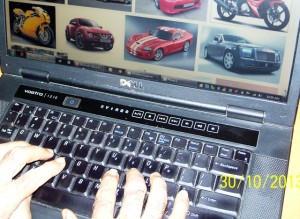 Force of habit makes me hit the keyboard hard…which is no longer necessary!!!
Force of habit makes me hit the keyboard hard…which is no longer necessary!!!
The Tailpiece
We have come a long way from those manual typewriters. With the spellcheck, built in thesaurus and the google search facility, writing is no longer the same. Our successors in service will not have to through those agonizing moments of getting drafts typed and re-typed. In fact the entire process of sending those ‘reports and returns’ has revolutionized.
And yet the QWERTY format has survived. The purpose for which it was devised is no longer relevant, but it will take a while before someone comes out with a better solution. Or, maybe, it will last forever due to sheer force of habit!
When the battle tanks appeared, they all but replaced horses which had been the soldiers best friend for thousands of years. In their memory, some armored corps officers continued to carry ‘horse whips for several years. Some continue to do so, even now; knowing very well that the mechanical transport does not respond to the whip, no matter how well it is swished! And, the associations of the retired mechanized forces officers are till this date called “Cavalry officers’ associations” A picture of a horse and tank must be inserted here, to refresh the memory.
I am reminded of a similar thing which happened in the field of automobiles. Before mechanical transport, mankind used animal transport. The power of a cart was determined by the number of horses employed to pull the carriage. Hence for a long time the cars were classified in terms of ‘horse power’ of the engine. Similarly, the light emitted by the light bulbs was measured in terms of ‘candle power’
In the end, for the sake of record, I am placing below a file picture of the Jaykay portable typewrite which I have owned for forty odd years. It never got outdated, and of course, it never got infected with virus. And I did not have to update the ‘software’ or install anti-virus systems. If ever, there was a defect in it, I could ‘see’ the defective component!
To be honest, I still love its look and feel. Notice the multi-colored ribbon near the roller, which I received as a gift!
A song for those who like it!

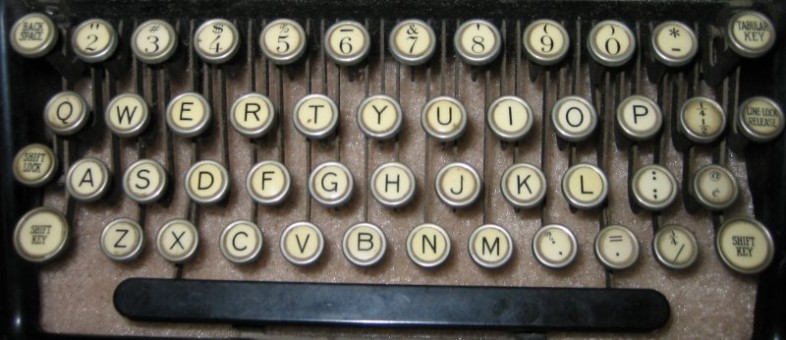
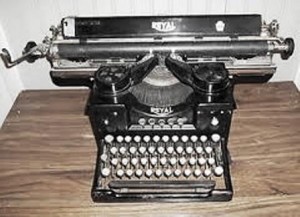
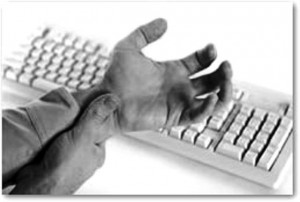
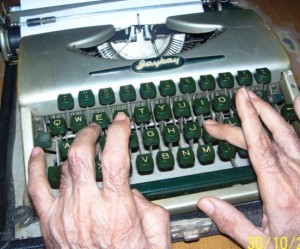
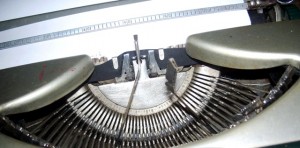
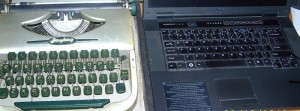
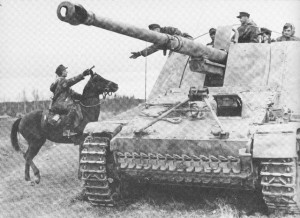
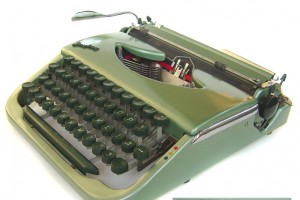





Old is gold. I hope you still possess your type writer. You have very rightly high lighted with time things fade away become redundant & sold at ” MATI KE MOL”
Contents of your web site are good.
Thanks & regards.
B B Ghai
Sir
Can I just say what a relief to find somebody who genuinely understands
what they are talking about over the internet. You actually understand how to bring a
problem to light and make it important. More and
more people must read this and understand this side of your story.
It’s surprising you aren’t more popular because you certainly have the gift.
Please keep these pieces coming!
Dear Sir
What an interesting article in your unique style? Rich nostalgia flows to the fore thinking of the type writer and eraser / white fluid days. Thanks.
Best regards
Anil
Anil,
Indeed. There has been a sea change in the method of typing. Printing has become a lot more easy. And yet there are things that have not changed. Composing a poem or writing a READABLE story continues to need talent and inspiration!
Surjit
Dear General Surjit,
Sir, i read your article with pleasure. I, too, after retirement from the Army in 2006, spend a lot of time on my desktop, chugging away at my Qwerty keyboard. I wrote an article on my time in Kharakvasla and presently i am trying my put down my autobiography titled-”My Life in the Army” and thoroughly enjoying my companion ship with the keyboard and my scanner, interspersing my anecdotes with photos as they happened.
Wishing you and Mrs Surjit a very happy and enjoyable retired life. With regards and best wishes,
Colonel Mir Ahmed Shah.
Dear Col Shah,
Thanks for the kind words. I am glad you enjoy writing. If you have some good pictures of your army days, do share them with us.
‘Guftagu’ is meant for precisely this purpose!
Surjit
Dear Gen Surjit,
I went through your website amolak.in and found it quite absorbing.
Your article on QWERTY Key bord is very interesting and gives an
interesting peep into a bit of history.
Thanks Sir, and if you do not mind I wish to post of link of your blog
on to our blog.
Narinder
Dear Sir,
another very nice article!!!
Most of us never thought why the letters are not alphabetical while typing!!!
Thank you Sir for sharing this knowledge.
Regards,
—Suman—
Suman,
That is force of habit! I think an engineer must always question. Progress comes out of inquisitiveness.
Everything must be doubted…including doubt itself!
Surjit
Dear Surjit,
Before you consign your manual typewriter to the dustbin, think of the radio and the bicycle which made a dramatic comeback.This is not just a wild guess !
A recent news item says that the Kremlin has placed a huge purchase order for manual typewriters after the infamous “Snowden ” leaks.The Russians are crazy but others are following suite !
Best wishes to the good old artifact I saw with you today.
Surinder Singh
Dear Brother,
I never had the intention of ‘dumping’ my beloved typewriter. For one thing, I typed my M Tech thesis when I was in (your) IIT Delhi. I claimed the cost of typing and the money I received paid for the machine. After that all the ‘middles’ I wrote were typed on this very machine, and I can still type on it.
In fact I hit the keys of the computer hard because of the type writer. I acquired it over forty two years ago. It had been with its original owner (though not used much) for four odd years. So it is almost fifty years old. It will soon be an antique…one of the first portable machine manufactured (or assembled) in India!
Thanks for your input.
Surjit
I once had a typewriter of my own, which I sold, soon after I bought a Computer in the early nineties. But, I never thought that typewriter could, by and large, be such a nostalgic piece of instrument for some one with my kind of background. It was very sleek and of course portable. But the qwerty thing is very interesting. And, I now miss it. Thanx. KJ
I think there is profound truth contained in what you have said in the letter to your readers, and take the liberty of quoting you:
“I would like to mention that the palatial house in which you live will not last long. The ride in a fancy car is also a momentary joy. At any rate, both these pleasures are not shared with others, and so no one will remember them. The only thing that will remain behind is the words which you speak or key in on the keyboard!”
The house in which one lives can give joy to others only if they are allowed to stay in it. And your swank SUV is nothing but a nuisance for all others on the road. Your expensive clothes and jewelry may give you a lot of confidence, but how do they add to the happiness of others? In the extreme case, they mat even evoke jealousy.
On the other hand, the pictures which you take and post on your blog and the words you key in can be of use…or at least entertain people.
So where should one be spending one’s money and effort? I think the answer is obvious!
Surinder
Surjit,
I thoroughly enjoyed this piece. Thank you.
Happy Diwali!
Kulbir
I liked it, thank you. A very happy Diwali to you & your family.
Renu
Surjit,
I am one of your course mates, 19th NDA 28 IMA I have been reading your emails which are always interesting and contain good advice . This is one of the best and most informative informative one . Do continue the good work God bless you
Ram Sharma
Dear All:
And my son just got me a “Nuance Dragon Naturally-Speaking Home 12 Software” with headphone microphone, which does not require any laptop keyboard to type. YOU speak and it recognizes the speech and type it for YOU. They call it “speech to text”. And can you believe that it is not only FREE but you get some money back for buying it? Unbelievable, that how far we came from 1940s and 50s to now. http://nuance.software.net/store/swnet/ContentTheme/pbPage.nuanceus-ms_dragon-naturally-speaking-11-home/ThemeID.16645600
I remember cramming tables up to 40X, 1.25X (Savaayaa), 2.5X (Dhaayaa), and 3.5X (Dhoncha) in 40s, then using 7 figure log tables in 50s, slide rule in 60s, computers (first paper punch tape, then card punch) in 70s, then calculator and now everything in a tiny handheld ipad or iphone. Amazing, still I like the song so kindly put by the General.
That is the ultimate truth of life, hence while we all are here let us dispel the darkness of ignorance from our hearts and minds, and fill it with LOVE, and LIGHT of TRUTH on these happy festival days of Lights – the Deepawali or simply Diwali.
ds
Excellent piece sir. The philosophy behind it is illuminating
Happy Deepavali
warm regards
lalit and neelam
Lalit,
Your mail is the shortest. And yet it expresses a lot!
In Hindi, they call it:
Gagar men sagar
Happy Diwali.
Surjit & Surinder
Surjit uncle,
Uncle,
Thank you for sharing this. It’s a real pleasure reading some of these accounts and experiences!
With love and regards
Anuraj
Anuraj,
Thanks.
We invite you to record some thing about to Israeli civilization and the life style of the Jewish people for the benefit of our readers.
There is a lot to learn from them. No other community has achieved as much as them, despite such serious threats to their very existence.
Surjit
Sir,
This is one of your best posts!
It was informative, and yet very readable. Keep these little stories coming!
Gul
Gul,
Thanks. Appreciation from you means a lot to me!
Surjit
Thanks, Uncle.
Wish you a very happy Diwali Uncle and Aunty. We miss connecting with you in person. Regards
Atul & Archana
Dear Gen Surjit
I really enjoyed reading this article. You make these anecdotes very interesting
Love and regards
Anu
Lovely and interesting, at the same time touching story. Thanks for sharing it. My Dad also owns a similar kind of type writer which he still uses. I don’t think he would exchange it for a computer, but then that’s him. take care both of you.
With love to both of you,
Gaddy
Dear Surinder ji
Thanks. Knowing Uncle and his forays in the legal field, I knew that he would have used a type writer. Next time I meet him, I will request him show me his machine.
Thanks for the kind words!
Surjit & Surinder
to me
Dear Surjit Veerji
Another brilliant piece…enjoyed reading it and was also reminded of my father’s old Remington typewriter at my Lucknow home! Time and technology have brought in Mac Air and smart phones, yet the QWERTY survives…great observation.
Had gone to US for a month to be with Prakarsh and you have been seeing my pics and updates and also commenting on them!
It is that time of the year again when we would like to greet you, so I will be meeting you and Surinder ji sooner than you expect!
Warm regards
Neena
Sir,
Just to thank you for all the wonderful mails.
Regards,
Sanjiv
Dear Sir,
Very nice and lucid write-up. Generalsaheb appears to be a very accomplished writer.
While in Pune Engg College, I happened to stay near a type writing Institute where lot of boys came to learn typing for getting typists’ jobs subsequently. I was always surprised to find the spot less and neat typing by some of them. I also secretly felt like learning typing, since my hand writing was (and still is) atrocious and too difficult for others to read. The Institute in-charge had become my friend and hence occasionally when students were few, I used to go and talk to him about my wish. Occasionally he permitted me to play wit a typewriter that was (probably quite) old. I saw that typing was very difficult to start, since I found it very difficult and slow to search and find the alphabets on the keyboard before typing my words since they were not serially. The in-charge gave me a sentence something like “a red fox jumped over —-” as a practice to get the touch systemfor effective typing. However I lost interest in the typing and could not progress therein. But I did understand that the alphbets on the key bowrd were arranged as per requirement fo typing. those letters needing frequent use were located at convenient location on the key lines.That touch system (as i was told) required only specific fingers of the hand/s to use for specific letters and accordingly as per lengths of the fingers the keys of those letters were fitted in those rows. This appeared to be be quite scientific for the use of fingers. I have seen people getting speeds beyond 50 words per minute (and without mistakes). But I lost my interest since this touch system could not be accepted by my fingers.
In sixties/seventies Electronic typewriters came into use. They had the same keyboard as the previous typewriters but corrections in the printed words/construction etc could be made while the paper is in the machine. That is why it became very popular. Papers were not wasted while drafts are corrected/repaired.
For my own use, I did get a portable machine imported from USA where my cousin had been since many years. But this was only after I retired from Army in early eighties. Though I did use it for long, that touch system of typing could never became my friend. Even now on computer as well I use ‘search and press the key’ system for doing my work. The name (or variety) of the keyboard is QWERTY is however understood be me only just now.
Computer was the next step in which typing could be done,corrected o computer and good paper could be printed on paper. The original typed page can be reserved for future reference or sending copies (if required) at later stage as well. That keyboard therefore was the the that was designed for manual typewriters in nineteenth century and being effective continued to be progressively used in electronic typewriters and then (i.s. now) for computers.
With regards,
——Mukund Apte
Dear Mukund Apte,
You have traced out the history of ‘typing’ very accurately. Most of us have gone through the same steps, with some differences.
The future is not ours to see. But it is certain that change is inevitable.
Surjit
Loved the article.
Thank you for keeping me in the loop.
By the way Pradeep & I have moved up the parental ladder, we are now the proud dad/ dadi of a baby boy…Neel Govindan
A very happy Diwali to you & the family
Warm regards,
Yamuna
Dear Yamuna ji,
When I look at your picture, you look like a bride. But now you tell me that you are a ‘dadi’ a graaand mother!!!
Be that as it may, here comes a blessing from this old man for Neel, his parents and his GRAND parents.
Surjit & Surinder
Dear Surjit,
Thank u for the very informative msg. U have provided the answer to my long standing doubt regarding QWERT.
We always had a large typewriter at home even from my childhood. much later I came across the portable version. U have reminded me about the black/red ribbon. Remington typewriters were the most popular though i understand that the indigenously manufactured Halda typewriters became more popular later.
I did not learn typing as a youngster. Those days senior officials dictated to their PAs who took down the msgs in Shorthand & typed the text. Even now I type my msgs with a single finger !!
Reading yr very informative msg I regret I did not get to know U more intimately while in service. Thereby I missed to know U , a multi-talented offr, the loss is mine.
Happy Diwali
Sundara Rao
Dear Surjit ji,
Very interesting write up as always!! Thank you very much.
Wishing a very Happy Diwali.
Harbhajan
Thanks for sharing your initiative and research to trace the real history alongwith your migration from
our time of mechanical typewriter to present laptop with a constant of QWERTY format. Liked it with the relevant song. ….. Jagmen reh jayenge … tere bol… Migration to new technology required same humans to be efficient , who had mastered the QWERTY ( though evolved for the moving parts not hitting each other). Wonderful article by you from the time of using all 10 fingers and force.
My own need for typing arose for typing my M. Tech thesis in New York , where I could not think of getting it done by rich assistants in New York, while I was living on a scholarship. Americans were surprised that I did not know typing and had no choice but to use the best available mechanical portable typewriter in March/April 1968. That helped in learning to type by two fingers , good enough for this life, I felt.
Now the smartphone era requires only one finger & smooth feather-touch to do most of the things. Time and technology do not wait…. but the song you selected is still valid.
Best wishes for a Joyful and bright Diwali to you & your extended family for brighter days & time ahead.
Thanks again, kind & warm regards.
Satish Manocha, Bangalore, (M) 9448061434
Most interestingly penned . No one would ordinarily even think of researching into something like this – what a discovery made so informative . Kudos to you , General Surjit for picking on some of the unlikeliest subjects and presenting them so beautifully to add to ones GK . You have a style of expression which is hard to emulate .
As an aside , talking of the dig at cavalry officers mentioned by Viren Bajaj in his comments above , knowing Rusty Dey as a coursemate I don’t think he could ever have been so pompous as to fish for compliments – am surprized !
Brig Prasad,
Thanks.
Yes. Bajaj has picked up a very appropriate portion of this little story!
You are kind with your words!
Surjit
Dear Surjit Uncle this is a very well written and a very informative topic.
Thanks for sharing the information relating qwerty keyboard.
Micky,
Thanks.
This Blog was started by you all. One day, maybe, you will contribute to it!
Surjit
History with passion. A good read.
Qwerty might be on the way out.
American Schools have stopped teaching typing. Most of the typing is done on pads and smart phones with two thumbs and not by 5 fingers. The next phones may have letters placed in sequential manner.
Change is the only constant.
I have shared this piece with my boys to give a glimpse of the army life then.
Dave,
Thanks.
I think the ‘qwerty’ format has stayed on for longer than its fair life. Holding on to it is not in the interest of the posterity. Someone has to take the lead…but I was hoping that it would come from the Indians, this time!
I do hope your sons find it worth their time to read the idle chatter of an old man!
Surjit
I liked the dig you took at the Cavalry officers. Going back 50 years, I was sparrow minor in 191 Bde Gp in Akhnoor. Rusty Dey, 1st JSW course(10th course) was the BM. One Sunday morning I hear him calling me. Coming out I found him on a horse in proper riding regalia, corduroy breeches, wellingtons, riding cap, sleek leather whip, and a colourful scarf around the neck. I wished him and complimented the majestic
dark brown horse. He said , ‘Arre woh chodo idhar dekho’ Clearly, he was fishing for compliments. I said, ‘Sir, despite the colourful scarf, the horse wins, hands down.’ He belonged to 2nd Lancers. Those were the days. Viren Bajaj
Viren
That was a nice one! Serves him jolly well right!
The Armored Corps officers are fond of showing off! But it goes to their credit that they can take a joke sportingly. And I like them for that.
Surjit
My dear Surjit,
Command of the English language or any language for that matter is a gift bestowed by God and the Wahye Guru has given you in abundance. Thanks for a very interesting article and please keep up the good work.
Regs
Suresh Chand
Sir,
You are very kind with your words. I know my limitations. And I also know that my knowledge of English language is no more than ‘skin deep’! Actually, I THINK in Punjabi and then translate. If it makes sense to the reader, it is because he is able to put up with my ignorance of English words and idioms!
Surjit
Dear General
Greetings from IIT Delhi.
My compliments for an excellent article. Could not remove my eyes till I finished your well written, interesting article. It was very nostalgic and brought back many old memories.
It reminded me of my father Late Maj Nahar Singh who was so fond of his portable typewriter which he also bought with lot of savings, I am sure.
He worked on it till his last breath, helping needy Ex Servicemen and Widows in DSS Board Gurgaon, by drafting applications for them.
He hardly used pen to write. He even use to type letters to us on an Inland postal letter.
Thanks for an lovely article and hoping for many more.
GOD Bless you and Your whole family Sir.
Capt BN Yadav
Chief Security Officer, IIT Delhi. 01. Nov 2013.
Dear Yadav,
Good to hear from you.
I have long association with IIT Delhi. My younger brother did his B Tech there with the first batch during 1961-66. and then his M Tech in 1973-75.
Finally I was ther in 1975-77 for my own M tech. I would be very glad to meet you if I am able to make it to that ‘temple of learning’ when we visit Delhi.
Regards and happy deewali.
Surjit
Dear General
Compliments for an extremely well written article.For some one on whom a laptop was thrust in March this year by his daughters and who still types with only the right index finger,the regret is why I refused to accept their gift earlier.I could connect more with ur article because I spent the 4 best years of my life at 32Bde.Hq.and made several trips to Kanchrapara till 1970.
I wonder if ur the Surjit Singh of Imphal Company who was a couple of courses senior to us and who had a tremendous sense of humour!
Regards and a happy Diwali.
Col.Gulu Hora
Dear Gulu,
Well, I was in Imphal company in 1961. But I am not the same Surjit Singh. I have aged…
Well, at Kanchrapara, we surely missed each other!
Now, where are you? And is it possible for us to meet?
Surjit
Dear Surjit uncle,
Yet another interesting piece. This article was very informative. I had always wondered about the rationale behind the ‘QWERTY’ format. Now I know.
Its fun to read how you mix history and fact.
Do you still type out letters with your 1971 typewriter?
Regards,
Isha.
Isha ji,
An ancient thinker said, “Knowledge is integrated. We divide it into subjects for ease of teaching and learning”
Have you observed that History is connected with Geography? And both are linked with languages… Now look at how Physics, Chemistry, Zoology and Botany are connected. Now, try learning any one of these subjects without a basic knowledge of the language.
In the present context, some knowledge of IT is mandatory.
And shall I share a secret with you? There is a branch of Engineering called, “human engineering” In that you try to learn human behavior. It is the most complex of all subjects. Unfortunately, no one teaches it. And that is because it is the most difficult!
I am looking forward to meeting you. You are one of the most sensitive persons I ever met in my life so far!
God Bless You
Surjit Uncle and Surinder Aunty
Isha,
Sorry, I forgot to answer the last question.
The 1971 typewriter is in a good condition. But I do not use it now. It is difficult to get its ribbon. And since it is not well oiled, it has become a bit sluggish.
It has aged gracefully…just like me and your aunty!
Surjit
Dear Auntie and Uncle,
Thanks for your reply.
You are right, the various subjects are connected.
Good to know you still have the typewriter. It would be fun to use it for writing letters.
A very Happy Diwali! Hope you had a good time with friends and family.
Regards,
Isha.
Interesting article.
Typing is one of the most useful skills I have learnt. In 1972 I was at the USAF Test Pilots School and the natives used to type their own reports. I had to request one of the secretaries to type for me. Obviously, they were busy people and had better things to do. I learnt my lesson. When I found a discount sale of a portable typewriter for $ 30 (then about Rs 220) I bought one and taught myself typing. This typewriter was my faithful companion for about 20 years. Among other things, it enabled me to produce neat exercises at Staff College with correct minor SD. In course of time I found it easier and quicker to type my own official work than to give it to a typist and then correct his errors.
When I got a full size typewriter I passed on the portable to a relative.
When computers came on the scene, my knowledge of typing helped me learn quickly.
3007,
Your comments are incisive, as usual!
When you went to the USA, we were far behind the West, technologically. The gap is reduced now, a great deal. We were paid so little that most of our salary went in food and essential expenditure. The current generation is luckier. I see them spending on gadgets liberally. Not only the officers, but even the soldiers.
The other day, a friend met a Havildar, whose wife is an engineering graduate!
And when I see our grand children, I find if difficult to keep up with their pace of thinking. And now, I do not even try. I am glad to lose to them.
2997
PS
Your observation on the use of the word ‘alphabet’ is correct. I made a mistake, which I intend to correct. Thanks
‘
Yes, in 1972 we were paid little. It was enough to manage in India but my wife and I had a very difficult time in US. $ 30 for that portable typewriter was beyond my reach during the course. It was only at the very end that I had saved enough money to buy it. BTW the Govt retrospectively increased the allowances two years after I returned. I finally got those arrears about seven years after I returned. All that is another story.
But back to the $ 30. The dollar today is only worth 1/10th of what it was in 1972. So it is the equivalent of $ 300 or Rs 18,600. For that money we can buy a full computer today.
And yes, India is catching up with US in technology. As I have remarked in another post on this blog, science in US is now dominated by persons of Chinese or Indian origin. And the head of the US Defense Advanced Research Projects Agency is a lady of Indian origin. When we were young, most of us did not even have electricity in our homes. It’s difficult to keep up with the changes in our environment.
Am I glad I am not too late.
QWERTY or NOT I still type… seeing the keys.
No mistakes please .
Spell check shows and Colls knows.
My spelling still is 101 percent, I think so.
Well your articles keep me engrossed, a naive guy can now dare to use a compy with utmost care and your wisdom also share.
How I wish I had been your pupil .
I hope the word is correct .
Thanks to the wise man in you
Sir,
How can a pupil become a Guru?
I learnt so much from you. And Veena ji will forever be out Didi.
Surjit
I have very few lovely friends
and
the first one is You
and SurrInder too
our first loving Bahu
”Khush rahoe …jahan bhee rahoe …duniyaa kay mele mein…..hum…. hum -safar bun kae rahoe …jubh taluk duniyaa mein rahoe
HAPPY DIVALI TO ALL YOUR SO MANY and loving …fans …friends …brothers… sisters …Elders…well wishers
I am FIRST at least here.
Ignorance was bliss
till I read this..
great work …will comment once reread
General sahib, I’ve always enjoyed reading what you write. I still have the book you gave me a long time ago at the Ashok Leyland Training Center. This piece is your usual style, conversational, interesting, descriptive and takes me with you where I am able to see with your eyes. I still remember the first time I saw an electric typewriter. It had a cylinder with the letters of the alphabet and the lady, the secretary of the man I had gone to meet to seek a job (didn’t get hired) worked on it with a look of haughtiness that spoke volumes about her pride in the machine. I bought my first PC in 1994 at Rs. 1 lak. And my first laptop, 486 with a B&W screen imported from Singapore in 1995 for Rs. 80000. I still remember the first time I took it with me on a flight – people couldn’t believe that it was a computer. Many thanks for sharing Sir.
Yawar Baig
Mirza ji,
Old age has many disadvantages; but there is one distinct blessing. One is not in any ‘rat race’ and so it is possible to look at life in leisure!
Technology has made life easy, but not necessarily simpler. Automobiles, computers and gadgets are welcome, but each of them has some ‘side effects’ In many cases, the erstwhile practices had an advantage.
Be that as it may, we cannot stop change. It is the only permanent feature of life. We are there to witness events and not participate in them!
Thanks for the kind words. I remember you fondly, and would be glad to meet you.
Surjit